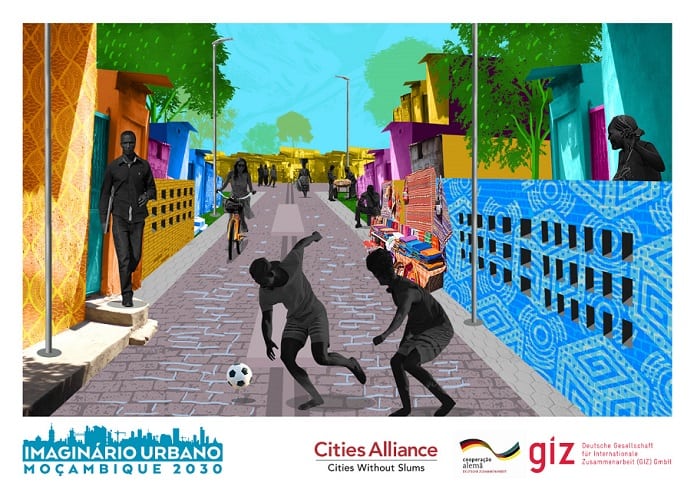Urban Festival in Maputo: Tapping into the potentials of urban citizenry
By Dr. Dana de la Fontaine
Between November 4th and 5th, 2016, the Second Urban Festival took place in Maputo, Mozambique, focusing on the role and potentials of urban citizenry. The Festival was the result of a cooperation between numerous partner programmes such as Cities Alliance/BMZ/GIZ, UKAid/DIALOGO, France, UN-Habitat, Concern Universal, Arquitectura sin Fronteras and Ingenería sin Fronteras.
Besides round-table discussions, plays, performances and movies about urban issues and an urban fair to learn more about urban civil society, the Festival also offered an exhibition coordinated by the Spanish architect Javier Frades on the topic “Mozambique 2030: Urban Imaginaries”. This exhibition included photomontages, which were created together with inhabitants of different social backgrounds and neighbourhoods from Maputo and Beira.
The idea was to showcase the changes that for instance young people or women would desire and prioritize in their urban surrounding. Inhabitants recurrently demand to install illumination and social infrastructure in urban neighbourhoods, especially in informal settlements. This is directly linked to the necessity for more security, which would give women more freedom to move around the city. Being regularly faced with traffic jams, long travels and dirty public spaces urban citizens are also calling for improved urban transport, inclusive green areas as well as better urban waste management.
The First Urban Festival took place in 2013. Now – in the context of Habitat III – the idea was renewed and a second edition was planned. These festivals offer urban actors, stakeholders and inhabitants a platform to exchange ideas and jointly reflect upon their city’s development. This increases ownership and creates a more positive identification with their cities as it strengthens citizens’ voices when it comes to a more inclusive and needs-based urban development.
- Urban Festival in Maputo: Tapping into the potentials of urban citizenry - 19. November 2016
- Learning from peers – Shaping Africa’s urban development - 5. October 2016
